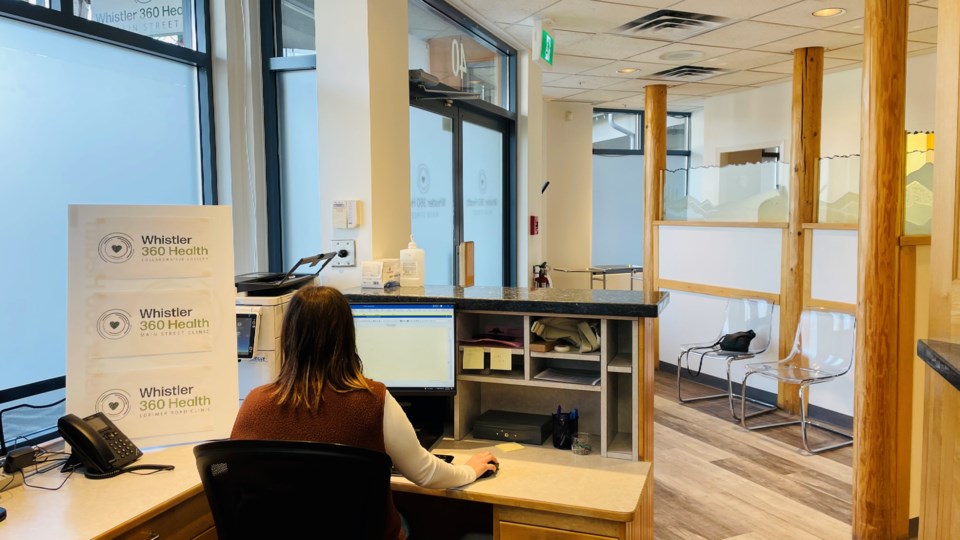The situation in Whistler is improving by several measures, but officials estimate about one million British Columbians and counting are still without a family doctor. As health-care professionals and policymakers face mounting pressure to bring that number down, a new report proposes sweeping recommendations its authors say would transform primary-care delivery in B.C. and beyond.
The report released Sept. 19 is the result of nearly 1,000 collective volunteer hours invested over a period of three months, not by physicians, politicians or experts, but by patients on the receiving end of that care.
Specifically, 31 British Columbians worked together to author the report as part of the OurCare initiative, a national project working to gather public input about primary health-care reform. A civic lottery system randomly selected 31 volunteers to join OurCare’s British Columbia Priorities Panel this spring, drawing from a pool of about 100 survey respondents who expressed interest in participating. The group met online twice before convening in Vancouver this June for three days of in-person discussions. During that time, volunteers learned about primary care in B.C. and across other jurisdictions from 19 experts who delivered presentations or moderated discussions.
Family physician Dr. Karin Kausky, founding director of the Whistler 360 Health Collaborative Society, participated in OurCare’s British Columbia Advisory Group.
“I’ve never been part of [a project] that had this kind of representation or contribution from the public,” said Kausky, who sits on Doctors of BC’s board of directors. “I think it’s a really interesting concept: take these 31 people, give them a bunch of education, speakers, then let them talk through what they think the problems are and come up with a series of recommendations. And I’ve got to say, I think the recommendations really hit the mark.”
The final report lays out 25 clear, actionable recommendations. Included among those are calls to set up Community Health Centres in every community; establish “catchment areas” modelled after the public school system that would guarantee residents access to primary care providers; create a central platform all clinicians and patients could use to access electronic medical records; commission independent, third-party monitoring of primary care initiatives; and create a Patient Advocacy Organization, to name just a few.
Work on some ambitious ideas raised in the report is already underway at the provincial level, said Kausky. Aside from a push for team-based care, a B.C.-wide platform where physicians could access electronic medical records is “something that’s been talked about provincially for a really long time,” she explained.
Here in the Sea to Sky, however, Whistler 360 is making waves with an innovative primary care model that aligns with several broader concepts laid out in OurCare’s B.C. report.
It started when the grassroots Primary Care Task Force formed in 2019, in an effort to help the estimated 40 per cent of Whistlerites without access to a family doctor at the time.
Fast forward a few years and several fundraising initiatives, and Whistler 360 is a flourishing, community-governed non-profit society complete with charitable status. The society took over operations of the Whistler Medical Clinic on New Year’s Day. Since March, Whistler 360 has grown its roster of care providers from six full-time equivalents to 11, and expanded its physical space with five newly-renovated exam rooms. “We’ve attached well over 1,000 patients and we’re just getting started,” said Kausky.
That increased capacity has translated to a measurable drop in the number of patients visiting Whistler’s emergency room to seek less- or non-urgent care since June. In August, those visits were down 15 per cent, Kausky explained.
The society “has really had a profound impact,” she said, not only on patients, but for Whistler’s primary health-care providers and clinic staff, too.
“A year ago, everybody was pretty tired of just saying no to people: ‘No, we don’t have any appointments today,’ ‘No, we’re not taking patients, sorry that you have this new cancer diagnosis’—it was awful for them,” Kausky recalled.
“They now get to phone people and say, ‘Hey, do you want a family doctor?’ And the number of people that burst into tears because they are so grateful—it’s just brought the joy back to work. It’s a whole different work environment.”
Kausky estimates “dozens of individuals or communities” have reached out to Whistler 360 asking for the secrets to the society’s success. “Interestingly, like with this report, we did it with a community engagement,” she said.
Now that OurCare’s British Columbia Priorities Panel report is complete, Kausky said she hopes the document helps health-care decision-makers “move along the initiatives that are already underway.”
And, like Whistler 360, “I hope it really sparks communities to organize and embrace this social contract of this shared accountability for primary care,” she added.
Read the full report at ourcare.ca.




